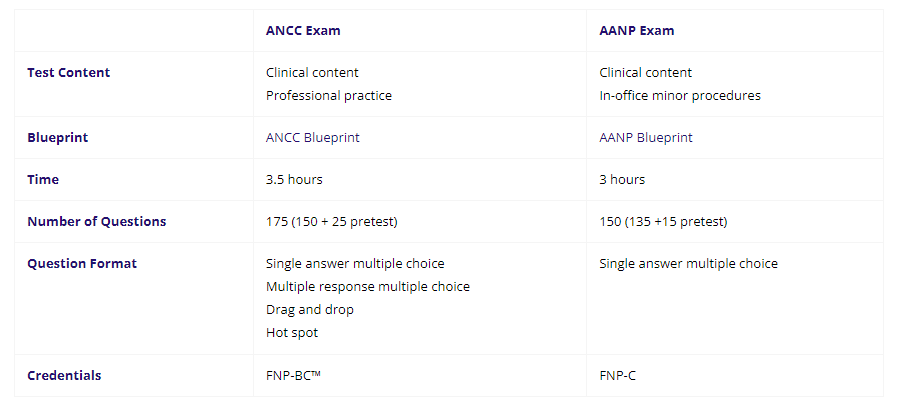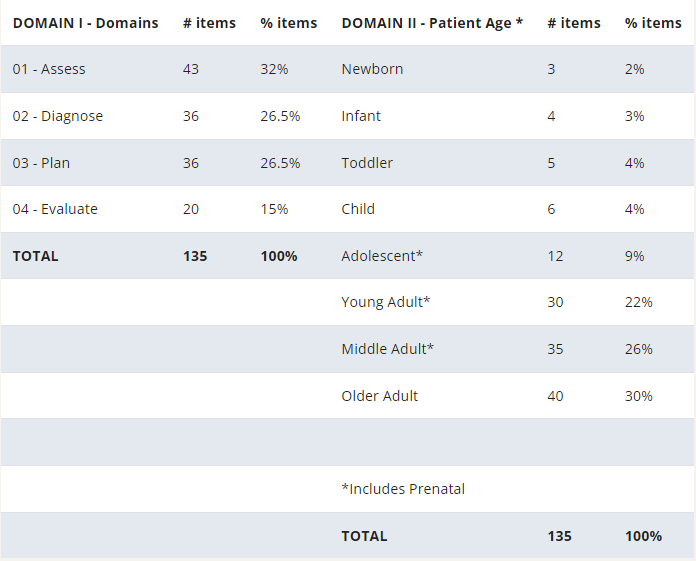The Family Nurse Practitioner Certification Exam: A Comprehensive Guide
Embarking on the journey to become a Family Nurse Practitioner (FNPNP) is both challenging and rewarding. It requires a registered nurse (RN) to hold a Bachelor of Science in Nursing (BSN) and complete an NP-focused graduate master’s or doctoral nursing program. This rigorous educational process is underpinned by evidence-based coursework and clinical rotations, providing the essential knowledge and practical experience needed in various healthcare settings. The final step is to successfully pass a national FNP board certification exam. With dedication and perseverance, these steps pave the way for a fulfilling and impactful career as a Family Nurse Practitioner.
Familiarizing yourself with the certification exam's content and effective preparation strategies is essential for nurse practitioners in training. This resource offers valuable information and tools to support nurses as they ready themselves for the certification test. Utilizing these materials can significantly boost your chances of passing the exam on your initial attempt.
Difference Between ANCC and AANP Certification for Nurse Practitioners
Certification examinations for nurse practitioners are administered by two primary bodies: the AANP (American Association of Nurse Practitioners) and the ANCC (American Nurses Credentialing Center).
Certifications from both the ANCC and AANP hold equal professional value. However, these organizations differ in several important aspects. One of the biggest differences between the AANP and ANCC exams is that the ANCC focuses on professional practice while the AANP emphasizes clinical skills. However, both exams certify you to work as an FNP. Below, we break down the FNP exam outlines and blueprints so you know what to expect on test day.


.png?width=940&height=788&name=spex%20%20did%20you%20know%20interesting%20fact%20Facebook%20post%20(9).png)

Exam Structure
The ANCC’s FNP Board Certification Examination consists of 175 questions in total. Among these, 150 are graded, while the remaining 25 are unscored pretest items. These pretest questions serve as a trial run to assess their suitability for future exams.
As candidates cannot differentiate between scored and pretest questions, it's crucial to approach all 175 questions with equal attention. However, it's important to note that only the 150 scored questions determine a candidate's final result. Performance on the 25 pretest items does not impact the overall score.
The Test Content Outline provided here details the subject areas covered in the exam. It also indicates the percentage and number of questions allocated to each major category within the scored portion of the test.
The AANPCB examination consists of 150 questions. Of these, 135 are scored, while 15 are pretest questions. The pretest questions help gather statistical data to determine their effectiveness before including them in the scored portion of future exams. These pretest questions are indistinguishable from the scored ones and do not impact the final score of the candidate.
AANP Exam Features
The AANP FNP exam assesses your ability in four FNP knowledge areas:
- Health assessment
- Pathophysiology
- Therapeutics
- Evidence-Informed Practice


ANCC Exam Features

What to Study
Begin your preparation by examining the exam content outline available on your certification agency's website. Create two lists: one for topics you're confident in and only need to review, and another for areas that require more intensive study.
Using Med-Challenger's Family Nurse Practitioner Exam Review can help you identify which areas are merely review and which require deeper learning. This insight will help you efficiently allocate your study time.
Remember, the FNP certification exam assesses your ability to apply the knowledge necessary for safe practice as a Family Nurse Practitioner. The exam evaluates your understanding of:
- Risk factors for patient conditions
- Development of clinical problems
- Typical clinical presentations
- Rationale for effective interventions
- Mechanisms of interventions
- Probable clinical outcomes
- Broader healthcare system implications of clinical issues
Keep these aspects in mind as you prepare, as they form the core of what the certification test aims to evaluate.
Question Styles
The AANP and ANCC Family Nurse Practitioner (FNP) exam primarily consists of multiple-choice questions (MCQs). Here are the key features of the question style:
-
Multiple-Choice Questions (MCQs):
- Each question presents a stem (the main part of the question) followed by several answer options.
- Typically, there are four answer choices, with only one correct answer.
-
Clinical Scenarios:
- Many questions are based on clinical scenarios that test your ability to apply knowledge to real-life situations.
- These scenarios may include patient histories, physical examination findings, lab results, and diagnostic images.
-
Evidence-Based Practice:
- Questions often require knowledge of current evidence-based practice guidelines and standards of care.
- This includes understanding the latest research, treatment protocols, and best practices in family practice.
-
Comprehensive Content Areas:
- The exam covers a broad range of topics within the scope of family practice, including pediatrics, women's health, geriatrics, and acute and chronic conditions.
- Questions may address health promotion, disease prevention, diagnosis, treatment, and patient management.
-
Critical Thinking and Decision-Making:
- Questions are designed to assess your critical thinking and decision-making skills.
- You may need to evaluate multiple pieces of information, prioritize care, and make clinical decisions based on the data provided.
By familiarizing yourself with this question style, you can better prepare for the AANP and ANCC FNP exam and enhance your test-taking strategies.
Scheduling Your Exam with ANCC
To schedule your exam with ANCC, visit the Prometric website at https://www.prometric.com/ancc. Create a Prometric account, or log in if you already have one. Enter your ATT number and other necessary information to schedule your exam. Choose a convenient testing center location and select a date and time within your testing window. Confirm your appointment and print out the confirmation page for your records.
Scheduling Your Exam with AANP
To schedule your Family Nurse Practitioner (FNP) exam with the American Association of Nurse Practitioners (AANP), start by visiting the PSI Services website, the designated testing service provider. Create a PSI account, or log in if you already have one. Once logged in, enter your eligibility ID and any other required information to proceed with scheduling your exam. Next, select a convenient testing center location and choose a date and time within your eligibility period that fits your schedule. After confirming your appointment, be sure to print out the confirmation page for your records. This ensures you have all necessary details handy on the day of your exam..png)

Pass Rates
ANCC reports annual numbers of first-time test takers and number passed for all active APRN and RN Specialty certification. Review the annual ANCC Certification Data Report.
The pass rates for the FNP board exams vary depending on the certifying body. For the AANP exam, the pass rate in 2023 was 73%, which was a significant drop from previous years, likely influenced by the pandemic and the shift to online education. On the other hand, the American Nurses Credentialing Center (ANCC) exam had a higher pass rate of 85% in 2023.
The difference in pass rates highlights the importance of thorough preparation for these exams. Both exams require a solid understanding of clinical and non-clinical topics, and candidates are advised to dedicate several months to study, using various resources such as practice questions, review courses, and study guides.

Strategizing Your Preparation
Comprehensive Study Material
Memorization alone is an ineffective strategy for exam preparation and practical application. This approach may teach you what to do, but it fails to provide the crucial understanding of why you're doing it.
For success both in the exam and within the broader healthcare system, it's far more beneficial to focus on comprehending concepts and applying knowledge. This method ensures you not only know what actions to take but also understand the reasoning behind them.
The Family Nurse Practitioner Exam Review offers a comprehensive approach to preparation. With its extensive collection of practice questions, it delves into the why, how, and what of FNP practice. This resource aids in expanding your knowledge base while simultaneously readying you for success in the FNP board exams.
By engaging with this thorough resource, you'll cultivate a more profound understanding of your practice, setting a strong foundation for your career as a Family Nurse Practitioner.
Time Management
To optimize your chances of success on this crucial high-stakes exam, plan for a dedicated study period of at least 4 to 6 weeks following the completion of your review course. Create a structured study schedule by:
- Blocking out 2-3 hour study sessions, six days a week
- Allowing one day off weekly to prevent burnout and feeling overwhelmed
- Assessing your current knowledge, identifying strengths and weaknesses
For instance, if cardiac information is a strong point and the NP review course merely reinforced your existing knowledge, you may not need to focus heavily on this area. Conversely, if thyroid issues remain challenging, allocate more study time to this topic.
Be mindful of the tendency to revisit familiar topics for comfort. While this may feel reassuring, it's not always the most effective use of your time. Instead, prioritize areas that need improvement and mark these topics clearly in your study schedule.
This strategic approach ensures a comprehensive and targeted preparation, addressing your specific learning needs for the exam.
See also: Nurse Practitioner Exam Prep Comparison Testimonial
Navigating the Exam Day
Stay Calm
It’s natural to feel anxious. However, staying calm and composed is crucial to think clearly and make informed decisions during the exam. Knowing what to expect by checking out the AANP Blueprint or the ANCC Blueprint can also help put your mind at ease.
Pace Yourself
The exam is structured to evaluate a broad spectrum of your skills and knowledge. Pacing yourself is crucial to ensure that every section of the exam is attempted with equal focus and concentration.
Review Your Work
If time permits, review your answers. Sometimes, a second look can offer new perspectives and insights.

Post Exam
Passing Criterion and Scoring
You’ll have three hours to complete the exam covering four domain areas including assessment, diagnosis, planning, and evaluation. The AANP-FNP exam is scored on a range of 200 to 800 and a passing score is 500.
ANCC reports test scores as pass or fail. If an examinee fails, the report includes diagnostic feedback for each major content area. Scores are on a scale of 0-500, with 350 needed to pass. The raw score (correct answers) is converted to a scale score using a formula. Failed score reports show the scale score, "fail" status, and diagnostic feedback.
How many times can I take the FNP exam?
Each FNP exam, the AANP or ANCC, has rules for retaking. The ANCC can be taken a maximum of three times in a year with at least 60 days in between testing dates. In order to retake the AANP, the Certified Nurse Practitioner candidate must first take 15 contact hours of continuing education focused on the area(s) of weakness.


